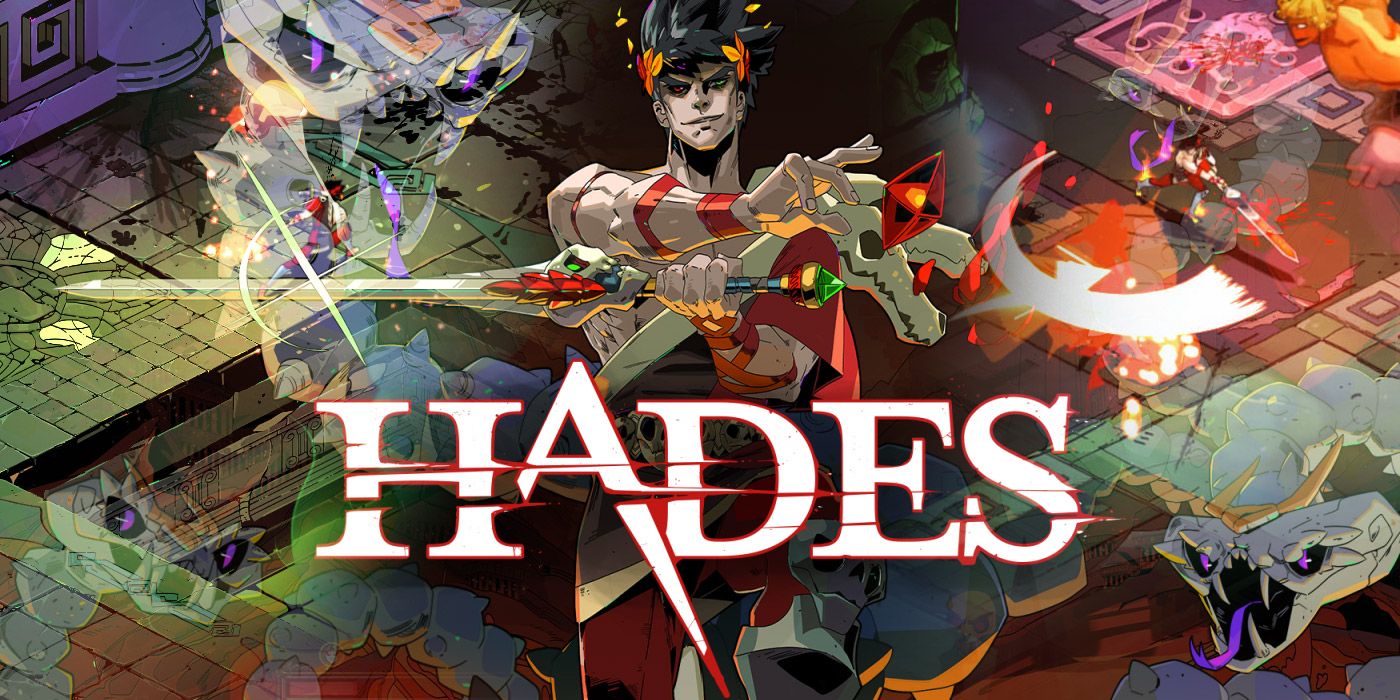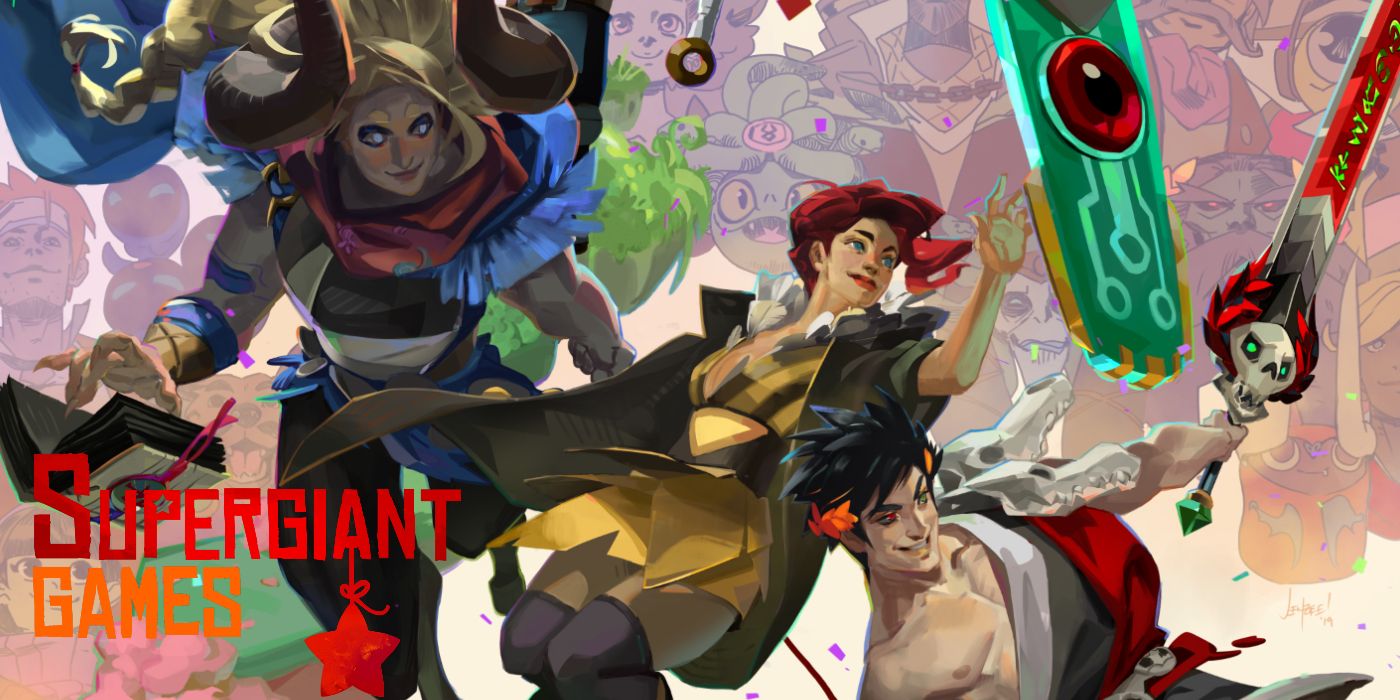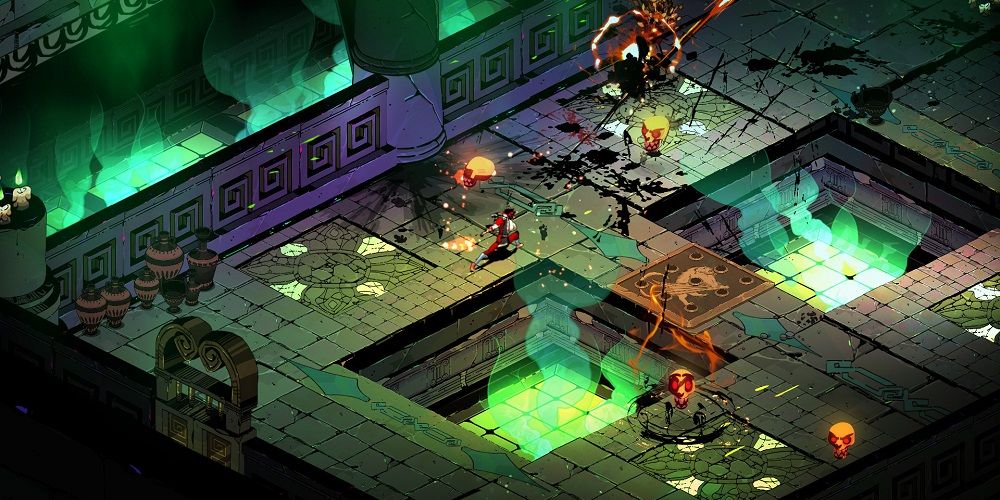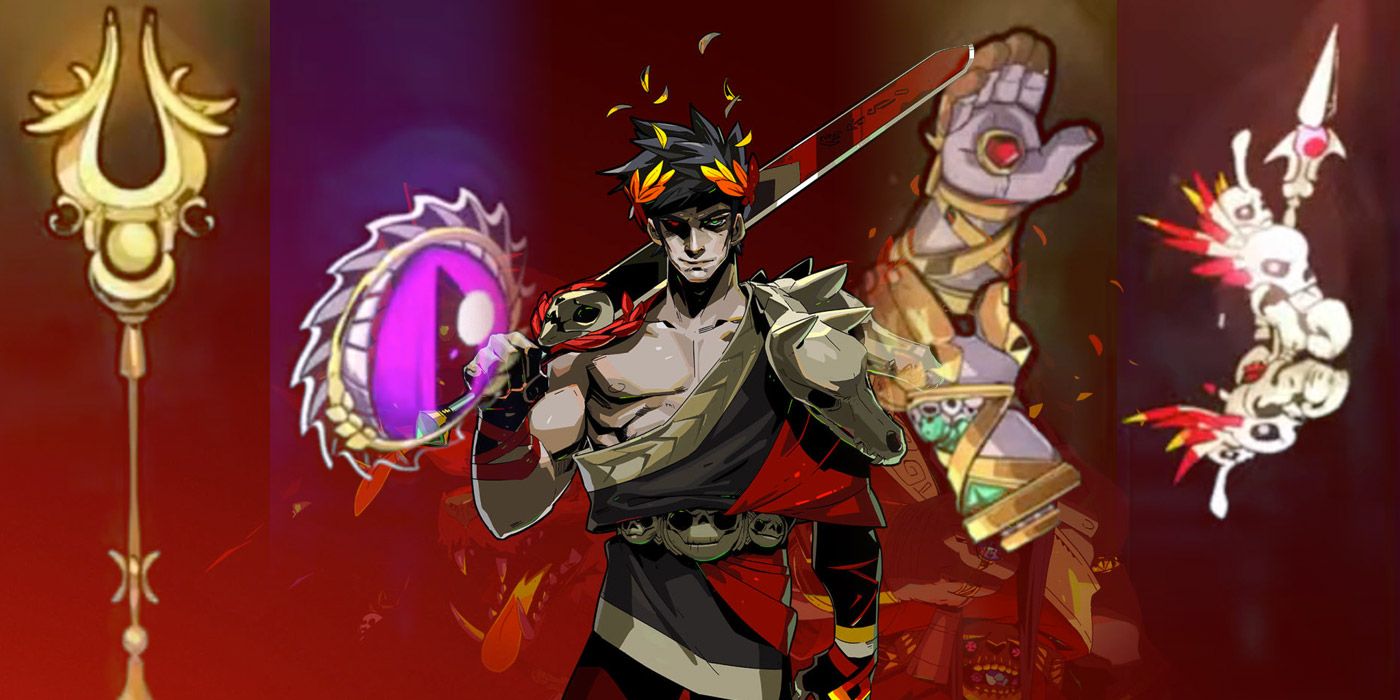
Roguelike ARPG Hades from indie studio Supergiant Games was one of the biggest success stories of 2020. After being released out of early access in September, Hades was met with universal critical acclaim and a massive following. Winning multiple awards at the Golden Joystick Awards and the Game Awards 2020, Hades helped the roguelike genre attract mainstream attention with its unique emphasis on narrative.
Hades has become the new face of the roguelike genre, but its success didn't happen overnight. The storytelling experiences that Supergiant Games learned from its previous games like Bastion and Transistor helped transform Hades into a distinctive roguelike that players haven't seen before. By combining the more accessible elements of roguelikes together with a narrative focus, Hades has transformed the genre to be approachable for anyone.
RELATED: 5 Indie Roguelike Games to Play if You Like Hades

Hades might be the biggest success from studio Supergiant Games, but it's certainly not the first. Stretching back all the way to 2011, Supergiant Games originally released an ARPG by the name of Bastion. Featuring a dynamic narrator and a gorgeous, hand-painted artstyle, Bastion's incredible narrative and sound design separated it from its contemporaries. Bastion would go on to win a number of awards and sell over three million copies. Three years later, Supergiant Games released Transistor, a sci-fi ARPG that featured a mysterious plot and a colorful world design. Like Bastion, Transistor received critical acclaim from both players and critics alike for its worldbuilding and narrative experience.
In 2017, Supergiant Games decided to experiment a little with its third title, Pyre. A party-based ARPG styled after sports games, Pyre kept the beautiful art style of Bastion and Transistor while changing up the style of gameplay. Though it didn't turn out to be as popular as Bastion or Transistor, it nonetheless garnered critical acclaim. Over the course of these three games, Supergiant Games has become synonymous with rich narrative experiences and detailed worldbuilding. Regardless of whether the gameplay was hack-and-slash or a unique spin on basketball, Supergiant Games was able to weave it together with a compelling story and cast of characters in an engaging, atmospheric world.
Hades is a testament to everything that Supergiant Games had learned over the development of its other three games. Although borrowing the permadeath mechanics of roguelikes can potentially make games frustrating, Supergiant Games was able to encourage replays through the progression of the narrative. Even if a player dies, new story sections, upgrades, items, and areas continue to unlock meaning that players don't have to be consistently successful to progress the game. Therefore, even if the roguelike elements can make the game difficult, the rich narrative and worldbuilding from Supergiant Games will always remain.

Another key reason for the success of Hades is that it's more of a rogue-lite than a roguelike. Although the difference between the two genres have more or less blended together over the years, rogue-lites imply that there is some form of permanent progression while roguelikes often imply a brand new start upon permadeath. For many roguelike fans, the punishing difficulty of the genre is a good thing as it forces players to improve and deal with a learning curve over time. However, for a developer like Supergiant Games that has become known for its excellent narratives and worldbuilding, having a permadeath mechanic where progress is easily lost could alienate its fans new to the genre.
As a result, Hades is much more of a rogue-lite as it borrows the roguelike elements of permadeath and randomized runs, but it never punishes the player for dying. Instead, each death in Hades continues to push the story forward and unlike many other roguelikes, there is no necessity to win in order to experience progression. Supergiant Games managed to incorporate the most interesting aspects of roguelikes without sacrificing accessibility in Hades.
That said, Hades is still a fairly difficult game. Like all roguelikes, the concept of permadeath takes some time for players to get used to, and they will experience their fair share of failed runs before finally beating the game. The biggest difference in Hades being a rogue-lite is that the most intriguing aspects of the narrative and characterizations are always available to the players regardless of their progression in the game. In most roguelike games, dying usually means that players will have to restart from scratch, losing everything they gained in that particular run. However, Hades doesn't treat death as a punishment for failing a run, but simply as part of the process to an eventual win.
RELATED: Hades Needs to Come to More Platforms

While some roguelikes such as Children of Morta and Tales of Maj'Eyal have been driven by narrative and lore, none of them manage to effectively weave it together with the core gameplay loop as effectively as Hades. The greatest success of Hades is finding the perfect balance between the story elements, characterizations, and the roguelike gameplay. By ensuring that players are not locked out of content for dying, the game manages to give newcomers to the genre a compelling reason to become invested in the story, which in turn, incentivizes them to continue playing. Though the concept might seem obvious, many roguelikes before Hades had never seamlessly connected the narrative experience directly with the gameplay mechanics.
With the success of Hades, it seems that the roguelike genre might undergo significant changes in the future. Although many developers had previously emphasized the importance of gameplay mechanics over the story, Supergiant Games was able to take utilize its experience in developing narrative driven games and connect it together with roguelike mechanics. Instead of leaving behind what made Bastion, Transistor, and Pyre so exciting, Hades doubled down on what Supergiant Games excelled at despite occupying a genre that typically doesn't focus on narrative.
On the surface, Hades is a fantastic game that offers players insight into what makes the roguelike genre so great. However, it's also a testament to how Supergiant Games has created a new standard for the genre as well. The way Hades manages to effectively utilize roguelike mechanics while simultaneously remaining accessible for newcomers is an incredible feat and a big reason for its success. As more and more indie roguelike games pop up over the years, the success of Hades will likely inspire more developers to focus on the story aspect of the games as well.
Hades is available now on PC and Switch.
MORE: Fan Creates Epic Crossover Art for Hades and God of War's Kratos

